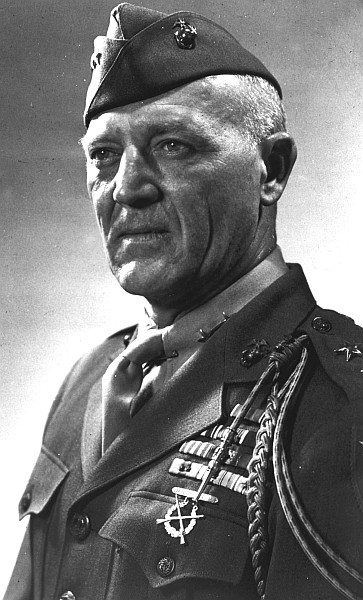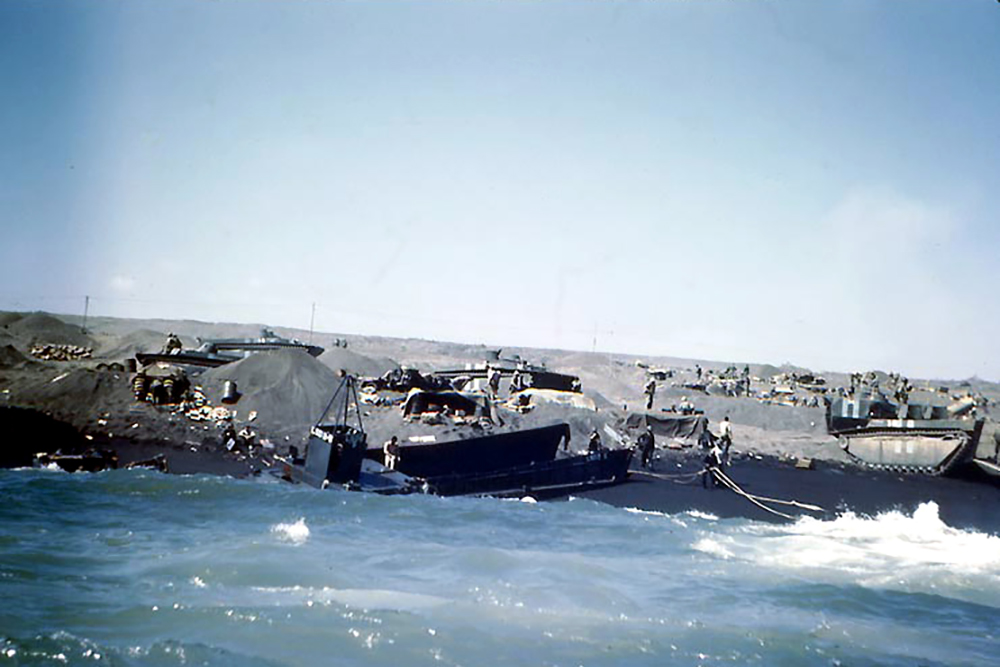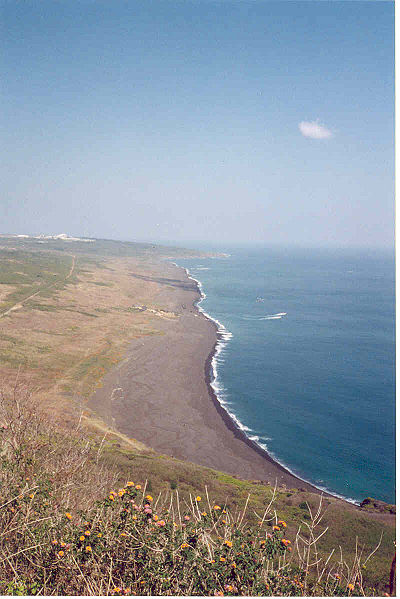Erskine, Graves Blanchard "Big E"
- Date of birth:
- June 28th, 1897 (Columbia/Louisiana, United States)
- Date of death:
- May 21st, 1973 (Bethesda/Maryland, United States)
- Buried on:
- Arlington National Cemetery
Plot: 5. Grave: 7033-LH. - Nationality:
- American
Biography
Do you have more information about this person? Inform us!
- Period:
- First World War (1914-1918)
- Rank:
- First Lieutenant (Lieutenant)
- Unit:
- 2nd Division, American Expeditionary Forces (AEF), U.S. Army
- Awarded on:
- June 3rd, 1919
GHQ, American Expeditionary Forces, Citation Orders No. 2
- Period:
- First World War (1914-1918)
- Rank:
- First Lieutenant (Lieutenant)
- Unit:
- 2nd Division, American Expeditionary Forces (AEF), U.S. Army
- Period:
- Second World War (1939-1945)
- Rank:
- Brigadier General (Brigadier)
- Unit:
- HQ, V Amphibious Corps, U.S. Marine Corps
This award was obtained with an bronze "V" for Valor device to be attached on the ribbon of the award.
- Period:
- Second World War (1939-1945)
- Rank:
- Brigadier General (Brigadier)
- Unit:
- HQ, V Amphibious Corps, U.S. Marine Corps
- Awarded on:
- April 1945
"For exceptionally meritorious conduct in the performance of outstanding services to the Government of the United States in the Pacific Theater of Operations during the period from 26 April to 12 August 1944."
This award was obtained in the form of an Gold Star to be attached on the ribbon of the first award and was also obtained with an bronze "V" for Valor device to be attached on the ribbon of the award. (Bureau of Naval Personnel Information Bulletin No. 337)
This award was obtained in the form of an Gold Star to be attached on the ribbon of the first award and was also obtained with an bronze "V" for Valor device to be attached on the ribbon of the award. (Bureau of Naval Personnel Information Bulletin No. 337)
- Period:
- Second World War (1939-1945)
- Rank:
- Major General
- Unit:
- HQ, 3rd Marine Division "Fighting Third", U.S. Marine Corps
- Awarded for:
- Operation Detachment
For exceptionally meritorious service to the Government of the United States in a duty of great responsibility as Commanding General of the THIRD Marine Division, prior to and during the seizure of enemy Japanese-held Iwo Jima in the Volcano Islands, from 24 February 1945 to 26 March 1945. Inculcating in the officers and men of his regiments his own indomitable spirit of determination; Major General Erskine welded his organization into a formidable fighting command for the Iwo Jima operation. Landing his forces on the southeast shore of the island under heavy enemy mortar bombardment, he deployed his units in support of the assault divisions according to plan, quickly assumed control of a difficult sector of the line and waged fierce battle against the fanatic Japanese garrisons. A bold tactician, he maintained his division well in the forefront of the assault, pushing the relentless advance inch by inch through the enemy's intricate network of defenses to make tortuous but steady progress over the fire-swept terrain, blasting strongly fortified gun positions and fighting off repeated counterattacks as he moved his battalions inexorably forward. Ultimately breaking through to the north coast of the island, he succeeded in splitting the defending Japanese forces into two disorganized and vulnerable groups. Constantly rallying his tired, depleted units, Major General Erskine by his undaunted valor, tenacious perseverance and resolute fortitude in the fact of overwhelming odds, inspired his stout-hearted Marines to heroic effort during critical phases of the bitter engagement. His dynamic leadership and decisive conduct throughout were important factors in the successful conclusion of the Iwo Jima Campaign and reflect the highest credit upon Major General Erskine, his gallant command and the United States Naval Service."
- Period:
- Second World War (1939-1945)
- Period:
- Second World War (1939-1945)
Sources
- - Aurthur, R.A. & Cohlmia, K., The Third Marine Division, The Battery Press, Nashville, USA, 1989
- United States Marine Corps
- Arlingtoncemetery.net
- Graves Erskine - Recipient - Military Times Hall Of Valor










